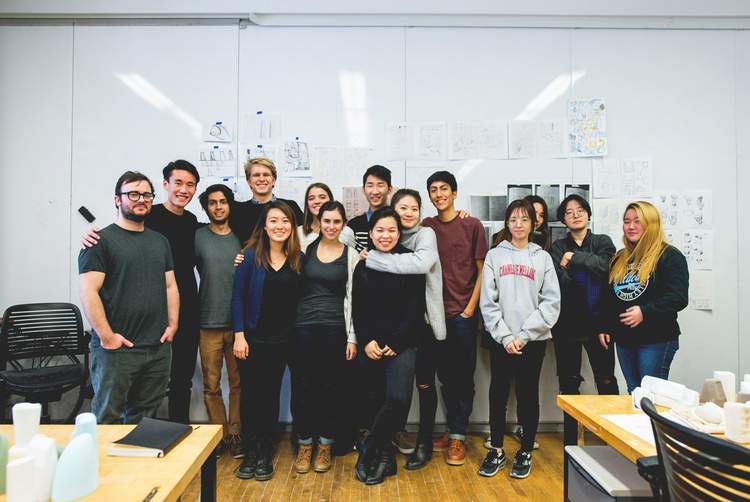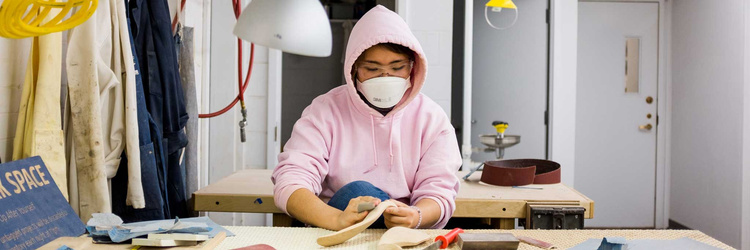
Form and Semantics
Fall 2016
6 Weeks
Over the course of 10 weeks, I investigated the idea of form language in physical products. I used different mediums and techniques, and I started to understand how to speak in the language of form—employing affordances and texture to indicate purpose and handling.
Problem Space
As a designer, it is easy to find myself primarily concerned with the forms of our digital products. However, it is also imperative to acknowledge that the physicality of the tools and devices we use and the behaviors they afford are just as important.
This project involves three different parts — an initial comfort exploration, a handheld “sensor,” and a water carrier. This was a progression to help with a gradual understanding of comfort and purpose.
Process
I made dozens of prototypes, using paper, clay, foam core, floral foam and low-density foam as my primary mediums. Craft was of utmost importance, because stray strands of glue and misaligned corners takes attention away from properly assessing the form.
We frequently had critiques by talking about the decision we made on the forms.
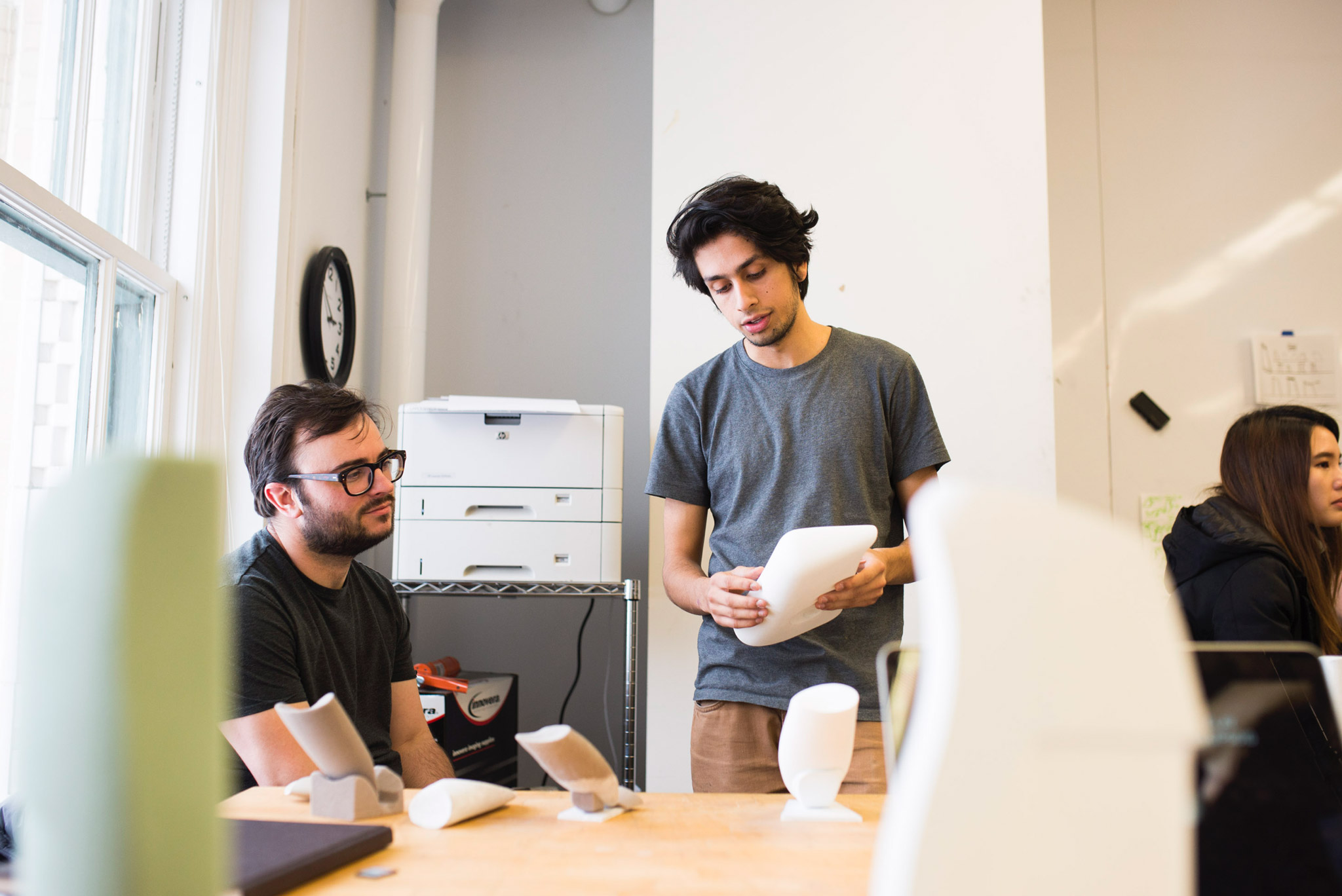
Visualizing was also a big part of the process. Always envisioning and planning ahead was crucial to making the proper cuts and edges.
I frequently sketched forms before I made them. When it was a larger form that would take a long time, I would use SolidWorks to model the object to properly plan my cuts.
SolidWorks Model.
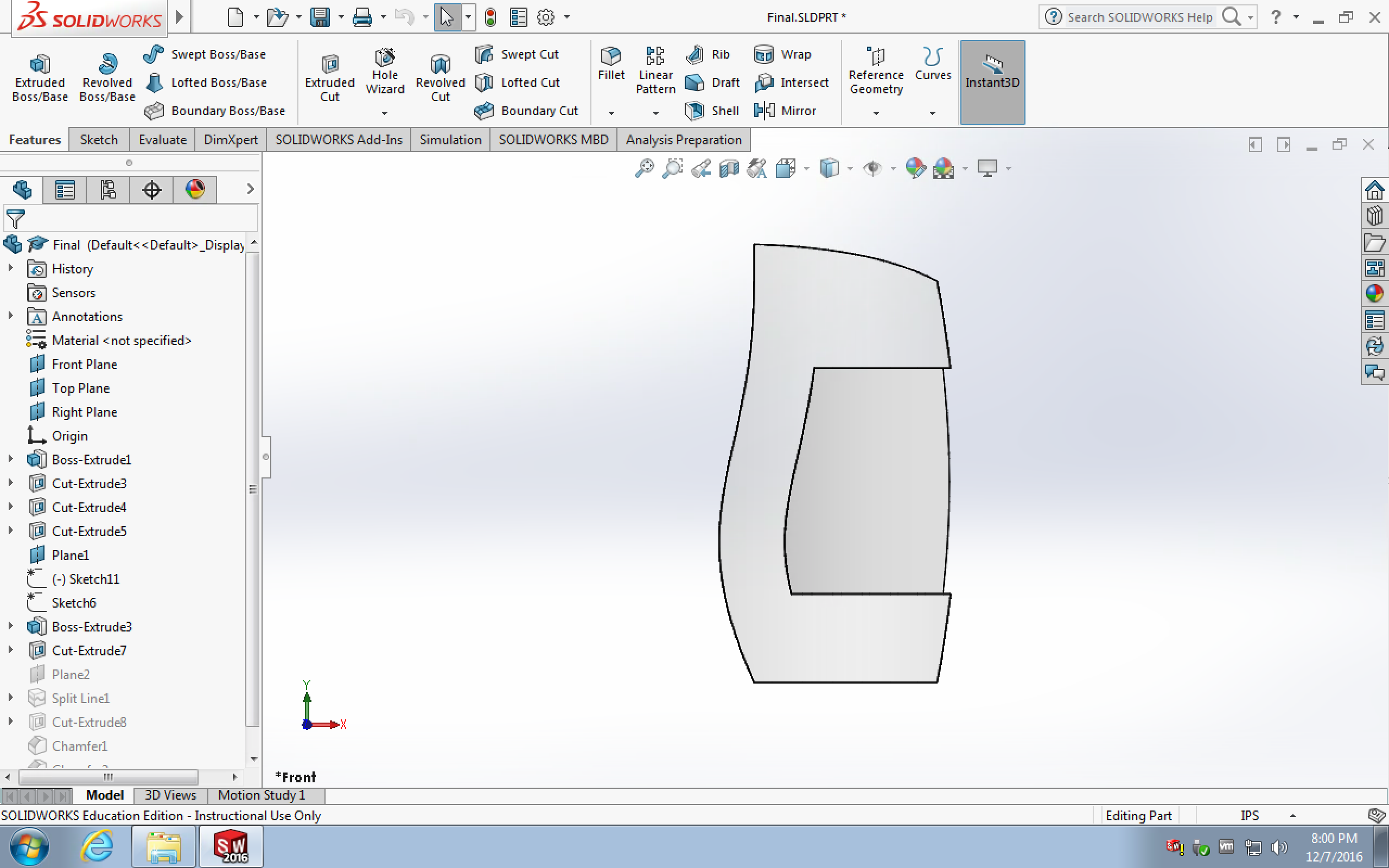
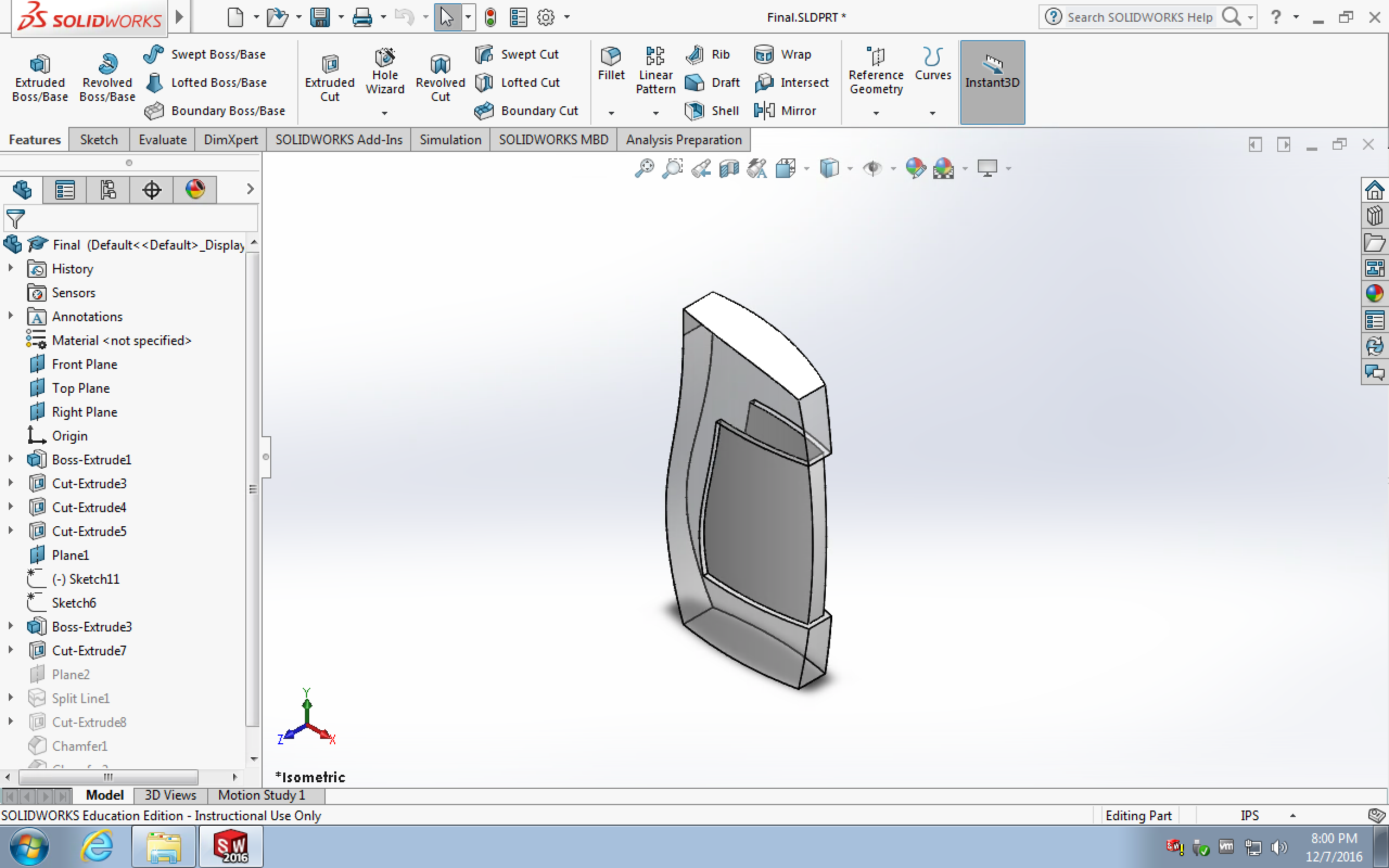
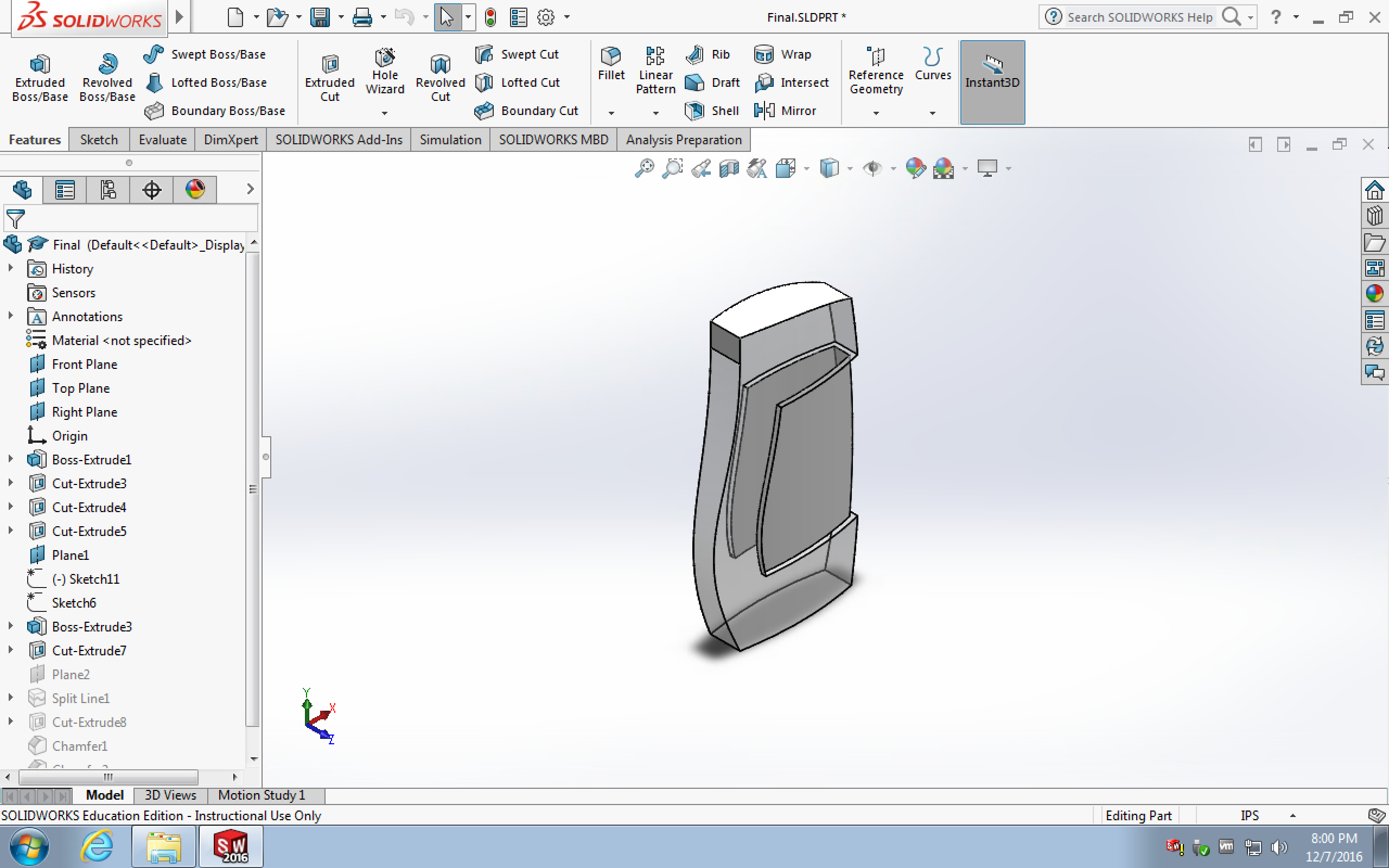
Final Thoughts
Through this time, I learned to appreciate and, to a degree, create form that people intuitively know how to use. There is a humanity to physical objects—we have muscles, hands and nerves that can see, grip, hold, and feel the world around us.
The 2016 Products Studio Class.
